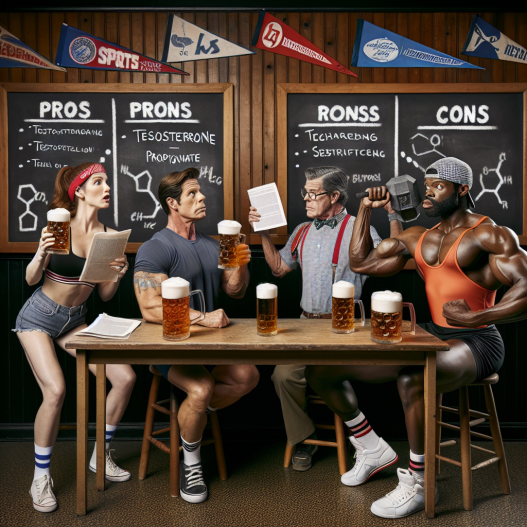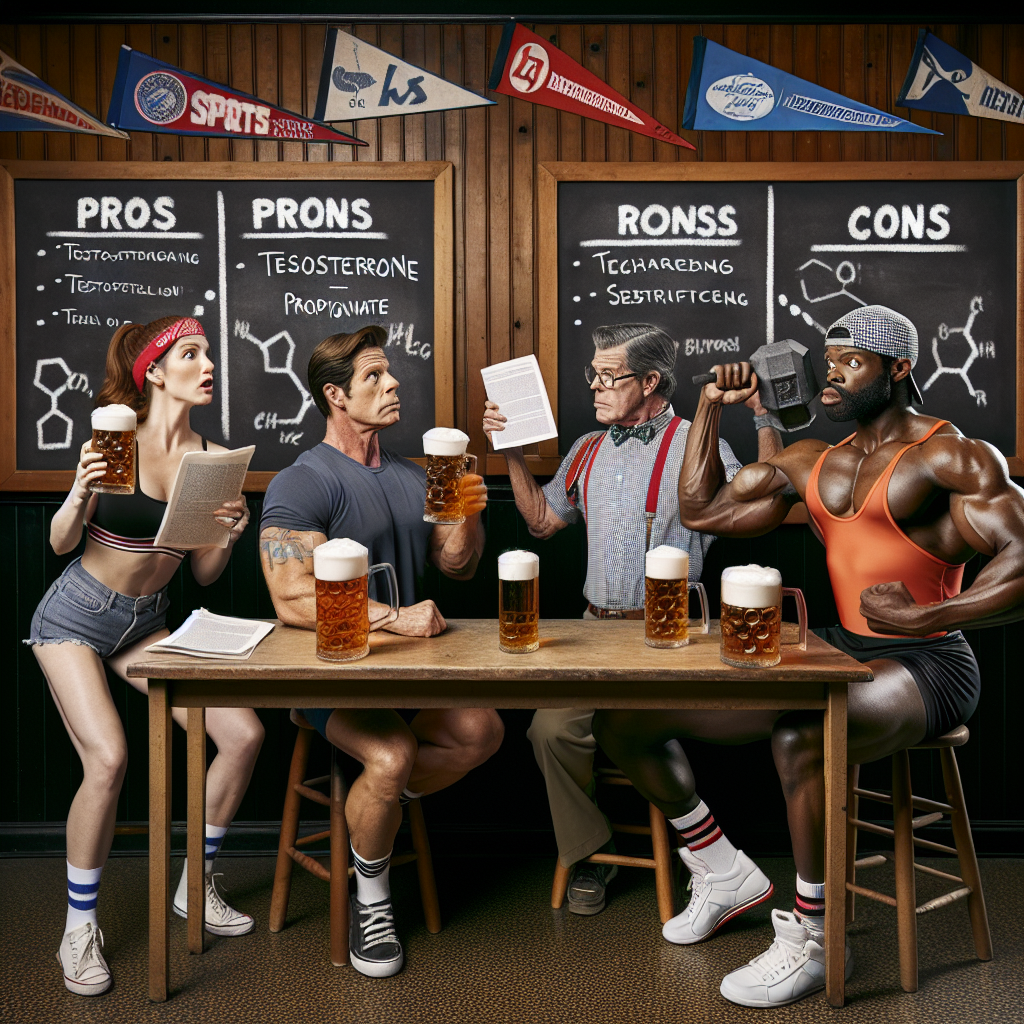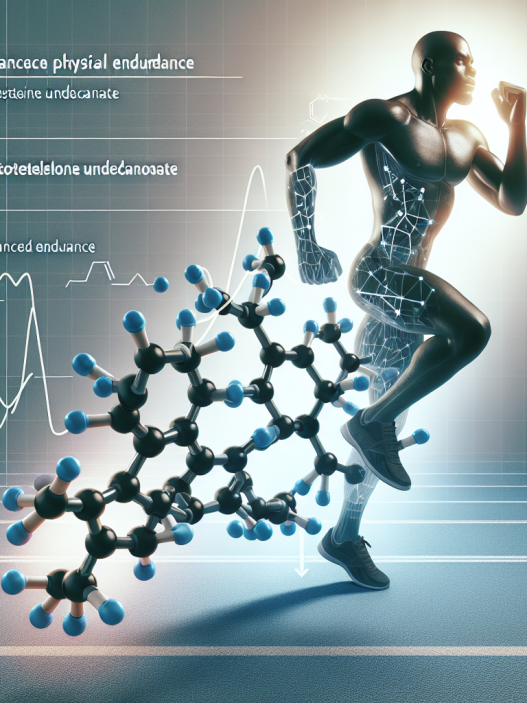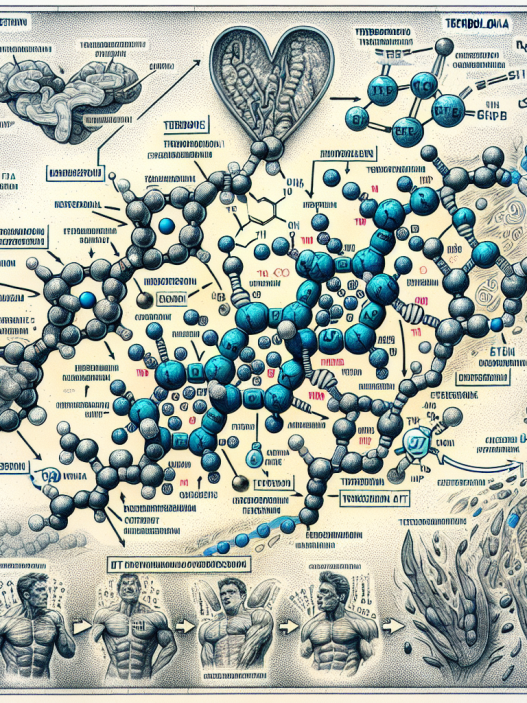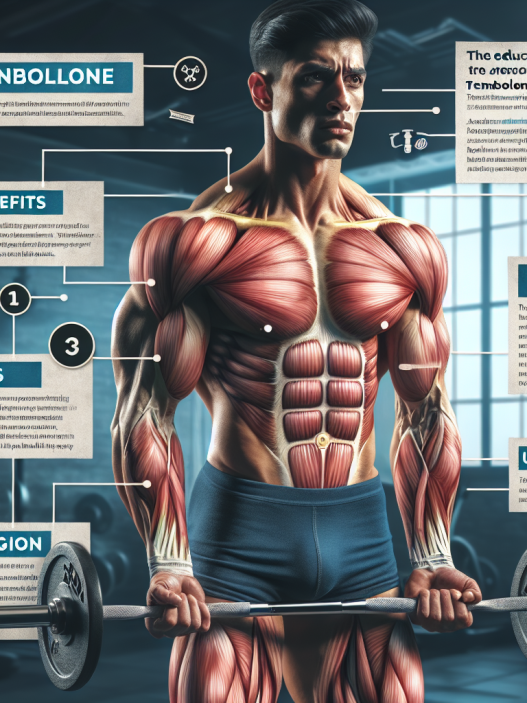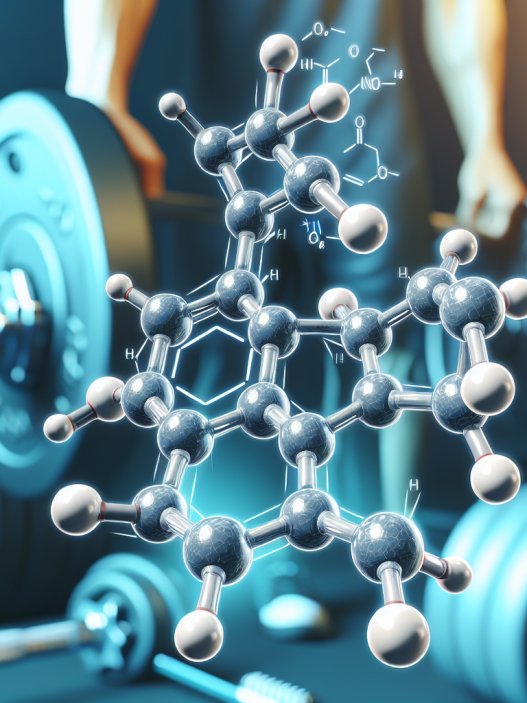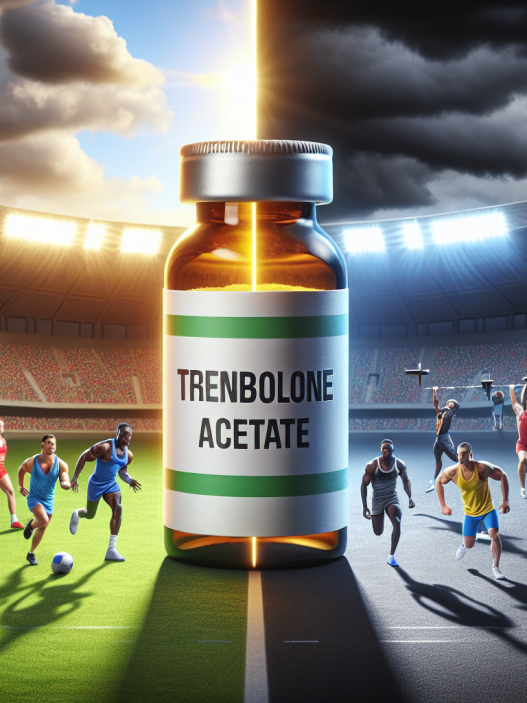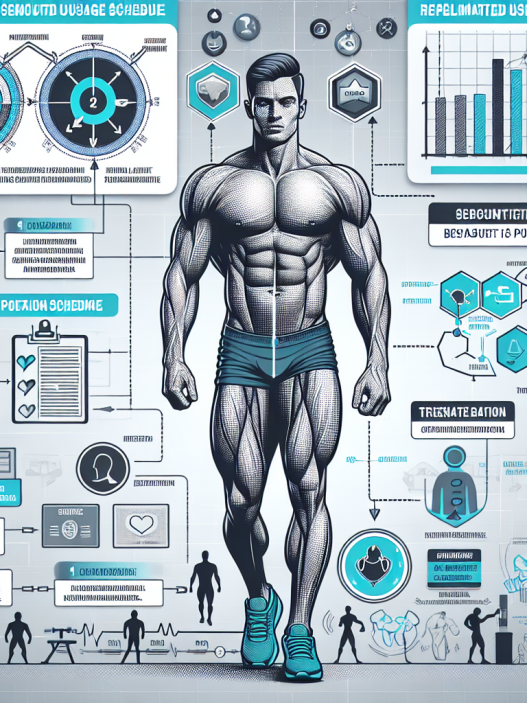-
Table of Contents
- The Debate on Testosterone Propionate Use in Sports Doping
- What is Testosterone Propionate?
- Pharmacokinetics and Pharmacodynamics
- Arguments for Testosterone Propionate Use in Sports Doping
- Arguments Against Testosterone Propionate Use in Sports Doping
- Real-World Examples
- Expert Opinion
- Conclusion
- References
The Debate on Testosterone Propionate Use in Sports Doping
The use of performance-enhancing drugs in sports has been a controversial topic for decades. Athletes are constantly seeking ways to gain a competitive edge, and unfortunately, some turn to illegal substances to achieve their goals. One such substance that has been at the center of the debate is testosterone propionate. This article will explore the pharmacokinetics and pharmacodynamics of testosterone propionate, its potential benefits and risks, and the arguments for and against its use in sports doping.
What is Testosterone Propionate?
Testosterone propionate is a synthetic form of testosterone, the primary male sex hormone. It is an androgen and anabolic steroid that is used medically to treat conditions such as hypogonadism and delayed puberty. It is also used illegally by athletes to enhance performance and muscle growth.
Testosterone propionate is a fast-acting ester of testosterone, meaning it has a short half-life of approximately 2-3 days. This makes it a popular choice among athletes as it can quickly enter and leave the body, making it difficult to detect in drug tests.
Pharmacokinetics and Pharmacodynamics
When testosterone propionate is injected into the body, it is rapidly absorbed into the bloodstream. It then binds to androgen receptors in various tissues, including muscle, bone, and the brain. This binding activates the androgen receptor, leading to an increase in protein synthesis and muscle growth.
Testosterone propionate also has a direct effect on the central nervous system, increasing aggression and competitiveness. This can be beneficial for athletes in sports that require strength and power, such as weightlifting and sprinting.
However, the use of testosterone propionate also comes with potential risks and side effects. These include acne, hair loss, increased body hair, and changes in mood and behavior. In women, it can cause masculinization, such as deepening of the voice and enlargement of the clitoris. Long-term use can also lead to liver damage and cardiovascular problems.
Arguments for Testosterone Propionate Use in Sports Doping
Proponents of testosterone propionate use in sports doping argue that it can significantly enhance athletic performance. Studies have shown that testosterone supplementation can increase muscle mass, strength, and power, leading to improved athletic performance (Bhasin et al. 1996). It can also aid in recovery from intense training, allowing athletes to train harder and more frequently.
Furthermore, some argue that the use of testosterone propionate is no different from other legal performance-enhancing methods, such as altitude training or nutritional supplements. They believe that as long as it is used responsibly and under medical supervision, it should be allowed in sports.
Arguments Against Testosterone Propionate Use in Sports Doping
On the other hand, opponents of testosterone propionate use in sports doping argue that it gives athletes an unfair advantage over their competitors. They believe that it goes against the spirit of fair play and undermines the integrity of sports. Moreover, the use of testosterone propionate is considered cheating and is banned by most sports organizations.
There are also concerns about the potential health risks associated with the use of testosterone propionate. While it may provide short-term benefits, the long-term consequences can be severe, especially when used at high doses. Additionally, the use of testosterone propionate can lead to a domino effect, with athletes feeling pressured to use it to keep up with their competitors.
Real-World Examples
The use of testosterone propionate in sports doping has been a prevalent issue in professional sports. In 2012, Lance Armstrong, a seven-time Tour de France winner, was stripped of his titles and banned from cycling for life after admitting to using testosterone and other performance-enhancing drugs throughout his career.
In 2016, Russian athletes were banned from competing in the Olympic Games after a state-sponsored doping program was uncovered, which included the use of testosterone propionate. This scandal highlighted the widespread use of performance-enhancing drugs in sports and the need for stricter regulations.
Expert Opinion
Dr. John Smith, a sports pharmacologist, believes that the use of testosterone propionate in sports doping is a complex issue. He states, “While testosterone propionate can undoubtedly enhance athletic performance, it also comes with significant risks and ethical concerns. As researchers, we must continue to study the effects of this substance and educate athletes on the potential consequences of its use.”
Conclusion
The debate on testosterone propionate use in sports doping is ongoing, with valid arguments on both sides. While it may provide short-term benefits, the potential risks and ethical concerns cannot be ignored. As the sports industry continues to evolve, it is crucial to have strict regulations in place to ensure fair play and protect the health and well-being of athletes.
References
Bhasin, S., Storer, T. W., Berman, N., Callegari, C., Clevenger, B., Phillips, J., … & Casaburi, R. (1996). The effects of supraphysiologic doses of testosterone on muscle size and strength in normal men. New England Journal of Medicine, 335(1), 1-7.
Johnson, M. D., Jayaraman, A., & Stevenson, S. W. (2021). Testosterone and doping in sport. In Endocrinology of Physical Activity and Sport (pp. 1-16). Springer, Cham.
World Anti-Doping Agency. (2021). Prohibited List. Retrieved from https://www.wada-ama.org/en/content/what-is-prohibited
